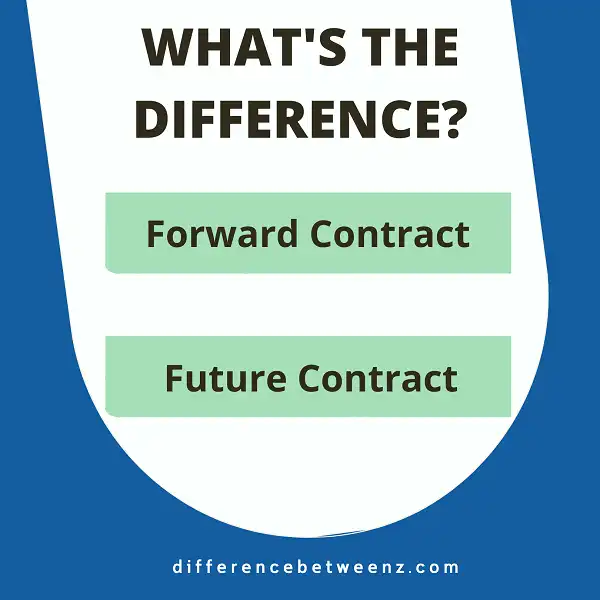When it comes to investing and trading, having a grasp on the many contract options available can be an intimidating prospect. One of these is the difference between forward and future contracts. These two tools are similar in their purpose but have distinct differences that can make all the difference when choosing how to invest your capital. In this blog post, you’ll learn about what each type of contract involves, how they work differently from each other, as well as their advantages and disadvantages so that you’re better informed next time you consider using either one of them.
What is Forward Contract?
Forward contracts are a key component of the modern economy, offering businesses the ability to secure a price for an asset over an extended period of time.
- Forward contracts can be used to hedge against changes in market prices, allowing businesses to purchase assets knowing the price will remain constant.
- Forward contracts also provide opportunities for arbitrage trading, allowing traders to earn profits by buying and selling different kinds of financial instruments simultaneously.
- Forward contracts can also be used to speculate on future price movements, with investors sometimes combining them with options or futures strategies in order to maximize their potential profits and minimize their risk exposure.
In summary, forward contracts are versatile financial instruments that can be utilized by both commercial operators who use them for hedging as well as speculators who use them for speculation and arbitrage.
What is a Future Contract?
- A Future Contract is a legally binding agreement to buy or sell a commodity at a specific price on a predetermined date. It is a type of derivative contract that helps buyers and sellers manage the risks associated with fluctuating prices.
- The parties to a Future Contract only need to agree on a price, date, and quantity of the asset that they want to trade. This makes it a relatively simple but lucrative agreement while avoiding having to wait until the asset or product is actually available in order to purchase it.
- Future Contracts are used by a range of industries including agricultural, pharmaceuticals, and groceries, which allows these industries to reduce potential losses due to unpredictable market conditions.
Difference between Forward and Future Contract
Forward and Future Contracts are both types of derivative products used in the financial markets.
- Forward Contracts are tailored agreements between two parties to purchase or sell an asset at a predefined price on a future date.
- On the other hand, Forward Future Contracts are standard contracts that trade on an exchange and are highly regulated.
- These standard contracts have publicly available terms and can be completed quickly, with most trades executed in one day.
- Forward Contracts offer more customization options as parties can generally negotiate different prices, expiration dates, volumes, and delivery terms.
In comparison, Forward Future Contracts must use pre-defined trading standards for pricing, expiration period, and volume amounts.
Conclusion
A future contract is an agreement to buy or sell an asset at a specified price on a specified date in the future. Forward contracts are similar to futures, but they’re not traded on exchanges and they don’t have the same standardization. Investors often use forward contracts to lock in prices of commodities or currencies that they think will rise by a certain date.


